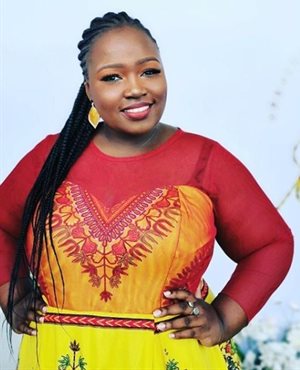
Cassie Jaganyi
While I’ve been fully behind some of the earlier ‘cancellations’ that plagued the media – such as celebrities or other well-known figures who demonstrated unpopular behaviours or said discriminatory statements à la Harvey Weinstein or Bill Cosby – I’ve recently come to the conclusion that as a society, cancel culture may be a barrier for individuals genuinely looking to understand the world.
This observation isn’t a random one, either.
This past month, Proctor & Gamble (P&G) Southern Africa held its third #WeSeeEqual Summit, which aims to further the fifth United Nations’ Sustainable Development Goal (SDG or Global Goal, for short) to achieve gender equality and empower all women and girls. It’s a cause very close to my heart for numerous reasons, and I’m extremely grateful and proud to be part of an organisation that champions levelling the playing field for women, in business and at home.
Should we cancel 'cancel culture'?
More and more, through structured platforms such as the #WeSeeEqual Summit, I am seeing men with a desire and willingness to learn and understand the biases that women have been subjected to for decades. However, with the repetitive events of recent years and a community that’s simply had enough, rightly so, tensions are at an all-time high. Movements such as 'cancel culture' often set us back in driving these open discussions, especially when men feel they will be attacked for asking a question or airing a view.
Courageous conversations – especially on social media – often become derailed and in some instances, I’ve seen women shun men who pose a question genuinely trying to understand what women as a collective are going through, without using the opportunity to create the space for understanding and engagement. And perhaps this is why many corporates and other public figures choose not to express their views on issues such as gender equality.
Dhesigen Naidoo 1 Dec 2020 There should be a way to allow more space to get things wrong as this is how we as humans learn, through trial and error. There is still a long way to go to achieve 100% gender parity and hindering critical conversations won’t get us closer to the goal, which the 2019 World Economic Forum Gender Gap Report says will take 99.5 years for the world to achieve – a forecast made prior to the pandemic.
Already, the United Nations has warned that Covid-19 has considerably impacted the gender equality agenda, with women placed at a disproportionate disadvantage.
Inviting more voices to the discussion
In addition to the #WeSeeEqual Summit and the company’s focus on female talent development, P&G also has Listening Pods. These sessions allow more open conversations between employees and recognise the different experiences felt by both men and women. For me, this is a huge step in the right direction as it addresses the issue of gender equality on an individual level and creates a safe space for constructive dialogue.
The rest of corporate South Africa may not be ready for such significant actions, especially in a culture where their intentions could easily be vilified. Yet, there are steps they – and perhaps all of us – can take to open the conversation around gender equality. The most important of these being taking time to listen.
In the same way that companies and public figures are afraid to add their voice to the conversation for fear of being called out, individuals are equally afraid to speak up for fear of getting fired or labelled as a problem employee or difficult co-worker. So start by listening. Listen to the complaints of your employees, listen to what they need, then act based on what they’re saying.
While great strides have been made in the gender equality space, I believe we still have a long way to go – as P&G, as the corporate world and as a society. The foundation, which was opening the conversation on gender equality, has been laid; now it’s time for the next step: listening and acting.













































